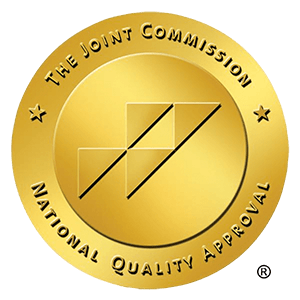What Does “Partial Hospitalization” Really Mean?
“Partial hospitalization program,” or “PHP,” is a confusing and perhaps misleading term, mainly because it does not involve being hospitalized or even setting foot in a hospital. PHP is the highest level of outpatient (i.e., non-residential) behavioral health care, offering structured, intensive treatment five days per week. There are no overnight stays at a facility; patients live at home and attend programming each day from Monday through Friday.

Core Recovery’s Co-Occurring PHP Program
Core Recovery’s Co-Occurring Partial Hospitalization Program is our most common PHP program track. Human beings are complicated, and oftentimes we struggle with more than one thing at once – including mental health, addiction, and/or eating disorders.
Core Recovery’s co-occurring programs attempt to meet a need for patients who don’t fit neatly into some of the “boxes” that other facilities require them to fall into. Rather than turning away a mental health patient who has struggled with addiction, or an eating disorder patient that has recently relapsed, Core Recovery welcomes these patients into its co-occurring treatment programs. Together, we develop treatment plans that address the overlapping and interconnected challenges that define our patients’ lived realities. Whether you are struggling with your mental health and an addiction, your mental health and an eating disorder, or all three at once. At Core Recovery, our team of therapists, psychiatric professionals, registered dietitians, and case managers, are here to help.
Patient-Centered Treatment
From the first day of treatment, the Core Recovery clinical team engages warmly, honestly, and empathetically with every patient to develop a customized treatment plan that is tailored to meeting that patient’s unique clinical needs and personal goals. As a Core Recovery patient, your individualized treatment plan will include a combination of group therapy, individual therapy, family therapy, creative expression therapy, diet and nutrition counseling, and psychiatric / medication management and treatment. Patients who are struggling with an eating disorder also participate in supported meals and ongoing meal-planning.
Evidence-Based Treatments and Modalities
Core Recovery’s Co-Occurring PHP program uses evidence-based modalities—including cognitive behavioral therapy (CBT), dialectical behavioral therapy (DBT), and eye movement desensitization and reprocessing (EMDR)—to provide patients struggling with one or more mental health issues, addiction issues, and/or eating disorders a healthy and positive therapeutic experience.

Learn About What to Expect as a Patient
Our integrated care model brings together a team of Psychiatric Nurse Practitioners, Counselors, Case Managers, and Behavioral Health Technicians to create a personalized and comprehensive treatment plan for each patient at our Arizona-based mental health facility.
| Adult IOP | Adult PHP | Adolescent IOP | Adolescent PHP | |
|---|---|---|---|---|
| Individual Therapy | ||||
| Family Systems Therapy | ||||
| Group Therapy | ||||
| Psychiatric & Medication Services | ||||
| Creative Expression Therapy | ||||
| Diet & Nutrition Counseling | Mandatory for eating disorder program participants. Optional or based on personalized treatment plan developed in consultation with Core Recovery treatment team. |
|||
| EMDR | Available based on clinical need and personalized treatment plan.. | |||
| Supervised Education | Optional | |||
| TMS Therapy | Available based on clinical need and personalized treatment plan developed in consultation with Core Recovery psychiatric provider. | |||
Our Pledge to Each of Our Patients
We know that entering a PHP program is a serious and difficult life decision. It is a substantial, five-day-per-week time commitment that requires a belief in yourself and a belief that prioritizing your care is justified by the promise of a better tomorrow.
At Core Recovery, our commitment to you is that we will stand shoulder-to-shoulder with you, working as your partner on your journey to achieving the health and wellness that you deserve. From the moment you enter our PHP program, we will work together towards a shared goal of reducing the frequency of care that you require in a way that promotes sustained wellness and recovery. Our greatest success stories are patients who enter our program requiring a five days per week of PHP-level of care, gradually step down to lower levels of care, and ultimately graduate from our program and return to their ordinary life routines without ever having to enter into another program or facility again.
FAQs About Core Recovery's Co-Occurring PHP
A: Core Recovery offers programing for those struggling with co-occurring disorders including mental health diagnosis, eating disorders, and substance use.
A: At Core Recovery your treatment program will be customized to meet your individual needs. Once we have completed our evidence-based assessments, determination of level of care and program type will be a collaborative process with your treatment team.
A: It is common for patients to apply for FMLA or Short-Term Disability while in our care.
Often, approval is dependent on your level and amount of care, which is determined during your initial intake appointment.
Our PHP patients participate in the program for a minimum of 20 hours a week. The IOP requires a minimum of 9 hours and up to 19 hours a week.
A: Outpatient programs—particularly IOPs and PHPs—appear to be as effective as inpatient programs in helping people get and stay sober.
One study found that an outpatient program for alcoholics had a 58% abstinence rate and a 79% improvement rate in patients at a two-year follow-up.
Another study found a 67% abstinence rate for inpatient participants, a 75% abstinence rate for outpatient participants at a 6-month follow-up, a 60% abstinence rate for inpatient participants, and a 68% abstinence rate for outpatient participants at a one-year follow-up.
A review of 12 studies and one review published between 1995 and 2012 found that IOPs and PHPs produced similar reductions in drug and alcohol use and increases in days abstinent compared to inpatient or residential programs.
Contact Us Today
If you or a loved one are struggling with one or more issues relating to mental health, addiction, or an eating disorder, we’re here to help. Contact us today to learn more about our co-occurring-focused programs and take the first step toward a brighter, healthier future.




